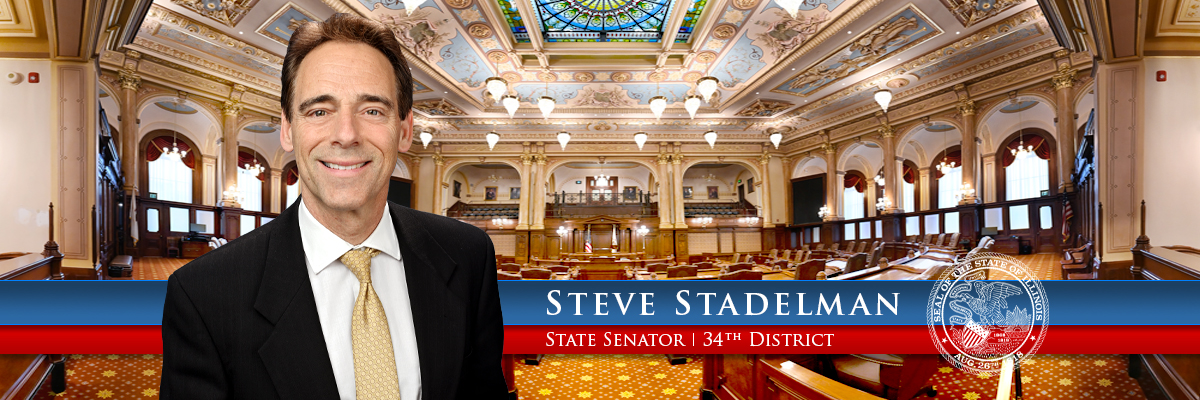Illinois to become 3rd state to require paid time off
Stadelman calls move 'substantial benefit' for workers
Most Illinois workers will receive five full days of mandated paid leave every year beginning in January 2024 under legislation supported by State Senator Steve Stadelman.
When the governor signs the Paid Leave For All Workers Act as promised, Illinois will become the third state in the nation to require employees receive paid time off work. The legislation -- which had been negotiated with business interests including the Illinois Retail Merchants Association -- received final approval during the final days of the 102nd Illinois General Assembly earlier this month.
The law will guarantee that workers earn an hour of paid leave for every 40 hours worked, up to 40 hours of paid leave per year. Employees can use the time off for any purpose and can carry over unused time into the next year. Nevada and Maine have enacted similar laws.
"I see this as a substantial benefit for an estimated 1.5 million hard-working Illinois women and men who currently don't have access to even a single day of paid sick time," Stadelman said. "Families are struggling to make ends meet, and sometimes life throws you a curve that requires you miss a day or two on the job. This legislation demonstates that our state respects its workers."

Highlights of Senate Bill 208 include:
All employers in Illinois are subject to the new law, including units of state and local government, with a few exceptions such as federal railraod works, temporary and student employees at colleges and universities and construct workers who are employed under collective bargaining agreements.
Home liquor delivery expected to expand under Stadelman-backed
bill to eliminate state and local fees
Saying small businesses stuggling with inflation and aftereffects of the global pandemic need more support, State Senator Stadelman voted in favor of legislation to eliminate state and local fees on home liquor delivery across Illinois.
Expected to expand liquor delivery services throughout the state, Senate Bill 1001 also would give the same authority to regulate liquor delivery to non-home rule municipalities like Rockford as those with home-rule powers.
“This legislation eases hurdles for businesses and consumers by streamlining regulations and removing burdensome fees,” said Rob Karr, president and CEO of Illinois Retail Merchants Association. “We appreciate ... this action, especially as more shoppers rely on home delivery because of the pandemic.”
Licensing fees for wineries also would drop from $1,2000 to $750 if renewed online and from $1,500 to $900 for initial or non-online certification if the governor signs SB 1001, approved in the waning days of the 102nd Illinois General Assembly earlier this month.



